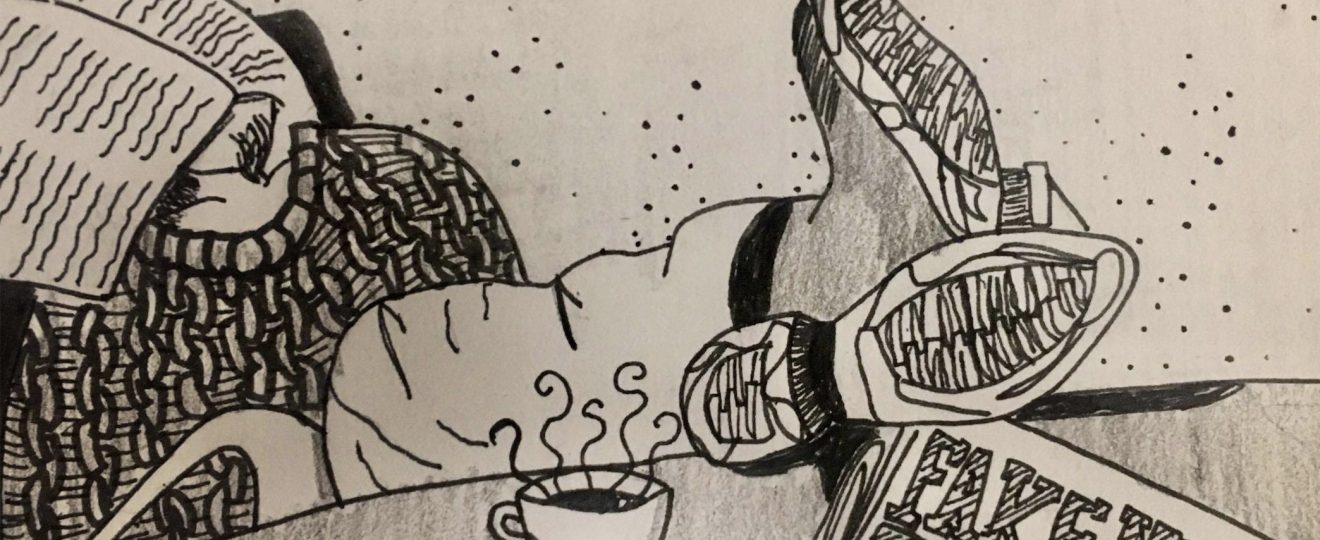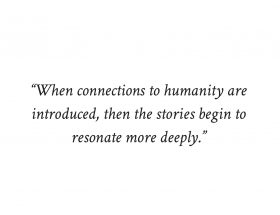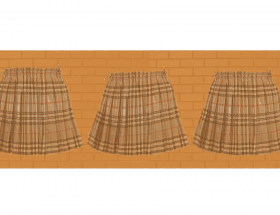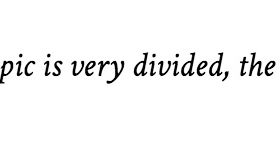The first thing I notice when I go onto social media is the crazy news headlines that line my newsfeed. They used to stand out starkly against the screen, and after reading the headline ensued a feeling of anger, shock, ridicule, humiliation… The list is endless but most importantly it highlights the fact that the news is rarely a tool of narration. Rather, the news has become the most useful element of the post-truth era in evoking emotions from a society that is sick and tired of having the facts presented to them in an orderly fashion.
I’ve noted that this overtly emotional presentation and form of journalism has become normality, the accepted standard and format of current journalism. Fox News has become the network of choice for the majority of Americans, remaining at the top (in terms of viewership) for years now, and the fact of the matter is that many like it around the world remain the most popular news sources in their own respective areas. People enjoy the oversimplified truth because it gives them an instantaneous feeling of satisfaction, something they have become used to. In a consumerist world where long term solutions are the second choice, it only seems obvious that this oversimplified truth should follow. People do not fact check Breitbart or the Dailymail because of the fact that they like living in an echo chamber that continuously proves their points of view to be correct or provides them with a sense of gratification and immediate ease.
“The more we are thrown in the general direction of yellow journalism by crazy media exposure, the less likely we are to do anything about the serious (and very real) problems surrounding us.”
The term for this kind of sensationalist news presentation has its origins in the 19th century with something called “yellow journalism.” The term was coined during a feud between the two newspaper tycoons Joseph Pullitzer and William Randolph Hearst in relation to what they published about the Spanish American War. The material they published massively demonized Spanish colonial rule in Cuba and romanticized revolutionaries and a need for US intervention in the situation. Aside from being a clear case of American imperialism embedding itself in common culture, these tactics were excellent for making money. It has sold many newspapers since its creation, and one can only imagine that these trends will continue as media continues to gain popularity and presence.
Yellow journalism has become our drug of choice as the truth becomes less and less important to us, and helps form our political and social opinions more than we care to admit, one might say. We subconsciously become unaware of the effect that the presentation of news in the post-truth era has on our minds, and over time become desensitized to a reality that is far more complex than a simple image or a headline worded to purposely make us feel negative emotions. This has undoubtedly been the result of our minds and our senses being attacked from every corner with quasi propaganda machines that have made crazy things simply a fact of life. The problem with yellow journalism, one might say has absolutely nothing to do with once in a while seeing what we cannot believe and immediately fact-checking it to ensure we can trust a headline, but rather the fact that we eventually become so exhausted fact-checking that these matters ultimately blend with the truth.
These news sources have become effective at doing this, and it becomes increasingly evident that truth manipulation is, in fact, a lot simpler than it has ever been as the media has become a staple part of our lives in every way shape and form. Come to think of it, the Orwellian reality described in 1984 really does exist to an extent: we go to sleep to the sound of music, television, advertising, and wake up to check our phones almost immediately. We walk from place to place with headphones in, always listening to one thing or another, and while we walk down the street all we see are advertisements, televisions, billboards… While it isn’t word for word a dystopian reality (this is always up for debate), the truth is that we are constantly at all times exposed to the media. By giving the media the opportunity to infiltrate our minds in ways that have never been possible before, we have become part of a society that can use that for their own political and social gains. They can subconsciously shape people’s minds via the media, because the more present it becomes in our lives, the more oblivious we become.
The more we are thrown in the general direction of yellow journalism by crazy media exposure, the less likely we are to do anything about the serious (and very real) problems surrounding us. People stop being shocked and upset because the more articles are published the more normal it becomes to accept the fact that fossil fuels are being baptized “freedom particles” by the current administration. It becomes difficult to separate satire from reality at a certain point, because everything looks more like The Onion the more you stare at it, and the problem is that at some point we stop worrying and we start laughing. We take our dose of satisfaction off of our newsfeed when we hear outrageous headlines repeating exactly what we think back at us. At the end of the day this all feels like we are unwillingly participating in a late-capitalist exploitation strategy, and it can safely be said that it might just be. Hearst and Pullitzer loved yellow journalism two centuries ago because it sold the newspapers, so who’s to say that that is not the case at the moment?
It is essential to retain our capabilities to think critically, but the problem with that is that it is more exhausting to tread water in a desensitized society than it is to simply sink into it and keep going. The truest solution would be to join in solidarity and demand otherwise, but as the media continues to sink its claws into the truth, it is imperative that we keep a strong and steady pace to avoid the obliteration of the truth altogether.
Art by: Desiree Finlayson




